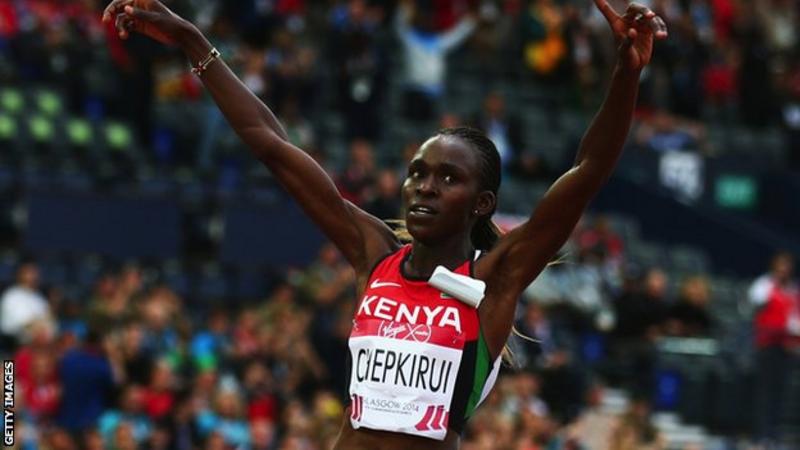Joyce Chepkirui: Kenyan long-distance runner gets four-year doping ban
Kenyan long-distance runner Joyce Chepkirui has been banned for four years for an athlete biological passport (ABP) violation.

Joyce Chepkirui won gold in the 10,000m at the Commonwealth Games in 2014
The 33-year-old won the 10,000m at the Commonwealth Games in Glasgow in 2014 and also took the African title over the same distance in Marrakech that year.
Chepkirui has been provisionally suspended since June 2019, after an expert panel studied anomalies in blood samples collected by World Athletics between 2016 and 2017.
The panel concluded the “likelihood of the abnormalities in results being due to blood manipulation” – the artificial increase of red blood cells using a stimulant – was “high”.
Chepkirui explained the results by saying she suffered from hormone imbalance and vaginal bleeding, which was caused by a contraceptive injected every three months, had an iron-rich diet and took three drugs to treat these conditions.
However, the Court of Arbitration for Sport (Cas) decided to ban Chepkirui after upholding an appeal filed by the Athletics Integrity Unit, and her four-year period of ineligibility has been backdated to the start of her provisional suspension.
Chepkirui’s results between 6 April 2016 and 4 August 2017 – which include a third-placed finish in the Boston Marathon in April 2016 – will be disqualified and she will be required to forfeit any medals, prizes and appearance fees gained in that time.
Meanwhile, Cas have ruled the Anti-Doping Agency of Kenya should pay 2,000 Swiss Francs (US$2,140) to World Athletics as a contribution towards its legal costs and other expenses.
Kenya is still listed as a category A nation by the World Anti-Doping Agency (Wada), meaning the country remains a high risk for doping.
As a result, Kenyan athletes still need to undergo three out of competition tests in a 10-month period before a World Championships or Olympic Games.
BBC Sport Africa understands Athletics Kenya had been hoping to be removed from the category A classification.





